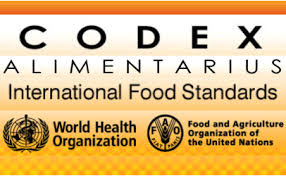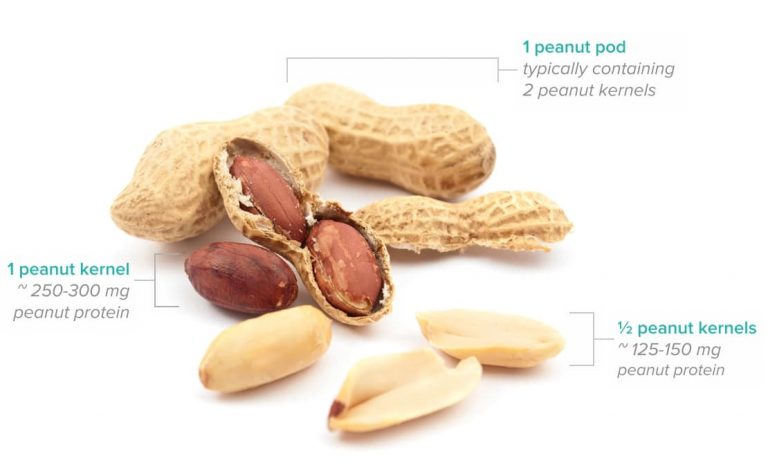Check out highlights from our meetings with Health Canada and Codex about food labelling and food safety. Learn about the new proposed bill in Alberta to protect students with life-threatening food allergy. Get involved in research studies, one on oral immunotherapy (OIT), and the other on measuring quality of life. Plus, participate in a public consultation on the “Product of Canada” and “Made in Canada” food labelling claims.
Read the latest research news including findings on the use of epinephrine, and the results of Aimmune Therapeutics’ Phase 3 trials on AR101 for use in OIT.
Also, check out our latest mythbuster: Can antihistamines and asthma medications be used to treat anaphylaxis?
Advocating for improved labelling and food safety

Last month in Ottawa, we participated in a Food & Nutrition Stakeholder Engagement Session with Health Canada. In our meetings with key Health Canada officials and the Canadian Food Inspection Agency (CFIA), we highlighted issues related to food labelling and safety and advocated to make food allergy a health priority.
Later in May, we continued our advocacy on food labelling as a member of the Canadian delegation at the 45th Session of the Codex Committee on Food Labelling in Ottawa. Codex develops internationally recognized standards, codes of practice, guidelines, and other recommendations relating to food, food production, and food safety.

We were the only Canadian patient group in the delegation representing the perspective of the consumers with food allergy (and only one of two food allergy related patient groups in attendance). Our discussions included recommendations on food allergen labelling standards, including precautionary allergy labelling (e.g. “may contain”).
We continue to advocate for clear, accurate, and complete ingredient disclosure for all food products to help Canadians with food allergy make informed and safe choices.
Albertans: Act now – New bill being proposed in Alberta to protect students with life-threatening allergies
The Legislative Assembly of Alberta has proposed a new bill called Bill 201: The Protection of Students with Life-Threatening Allergies Act. The Bill passed the Second Reading on June 17, 2019 and is now moving to the Committee of the Whole and then to the Third Reading for a final vote by mid-July.
Bill 201 would require all publicly-funded school boards in Alberta to establish and maintain:
- An anaphylaxis policy that includes strategies to reduce the risk for students
- A communication plan for the school community
- Mandatory training for school staff
- Individual plans for identified at-risk students
- The requirement for stock epinephrine (an auto-injector not prescribed to a specific individual)
These measures will help provide greater protection for these students and create safer school environments.
This new bill is modelled after Sabrina’s Law, which was enacted in 2006 in Ontario. However, the proposed bill in Alberta is making one significant addition by mandating stock epinephrine as a requirement for schools, which would make it the first law of its kind in Canada for publicly-funded schools. Given that epinephrine is the first-line treatment for anaphylaxis, and it’s required to be administered at the first sign of a serious allergic reaction, providing schools with greater access to this life-saving medication is a huge step forward.
Make sure this bill passes! Follow these steps:
- Step 1: Contact your local MLA (either by phone or email) and tell them why Bill 201 is important to you and your family and how this bill will help provide additional safety measures in your schools. Find your local MLA.
- Step 2: Ask your local MLA to support this important new legislation.
- Step 3: Please share with others to amplify this message and get greater support.
Learn more about this bill from this article in The Edmonton Journal.
Research: Call for participation – provide your feedback on oral immunotherapy (OIT) guidelines

The Canadian Society of Allergy and Clinical Immunology (CSACI) needs your input. They are developing clinical practice guidelines for allergists on the treatment of food allergy with oral immunotherapy (OIT) and would like to hear from you.
OIT involves the regular ingestion of measured and increasing quantities of an allergy-causing food under medical supervision in order to progressively increase the patient’s tolerance, which, in time, may reduce the risk of allergic reactions. The guidelines will provide guidance for the safe, effective, and efficient provision of OIT to patients allergic to egg, peanut, milk, wheat, soy, tree nuts, or other foods.
How to participate
If you are a parent/guardian of a child with food allergy, or have a food allergy yourself, you are invited to complete a brief questionnaire (5 minutes). The questionnaire can be completed in English or French and is intended for anyone who is considering or undergoing OIT, or has completed treatment.
The consultation team will review the questionnaire data and select individuals to be interviewed about OIT. Not everyone who completes the questionnaire will be contacted for an interview. The interviews are part of the consultation process and will provide the team with a better understanding of the experiences and perspectives of patients and families, which will help inform the new OIT guidelines.
This project is managed by a CSACI-appointed executive committee with the methodological support of Quebec’s National Institute of Excellence in Health and Social Services as well as the Health Technology Assessment unit of Montreal’s Sainte-Justine University Hospital Centre.
To learn more and complete the questionnaire, go to the csaci.ca Home Page were you will find information and a link to the questionnaire. Deadline for participation is Friday, June 28, 2019.
Research: Your voice is needed – participate in an important research study that will help to measure quality of life

Participate in a new study that aims to understand your health preferences and how food allergy affects your quality of life. This study is a collaborative initiative with CHU Sainte-Justine’s in Montreal and Food Allergy Canada, and is sponsored by a Canadian Allergy, Asthma and Immunology Foundation research grant. It is led by Dr. Philippe Bégin, allergist at CHU Sainte-Justine.
If you have a food allergy or are a parent of a child with food allergy, you’re invited to participate in this important study. You will be asked to complete an online survey, available in English and French, that should take approximately 40 minutes to complete. This survey is lengthy because it includes detailed questions on your general health preferences, which are needed to establish quality of life indicators for the food allergy population. These measurements have never been calculated before.
Your participation in the study is vital to providing the researchers, and patient organizations like ours, with insightful results on how the quality of your life can be greatly improved.
These results will help to inform our advocacy efforts with government and other key stakeholders to drive positive change, such as:
- Increase access to drug coverage (e.g., ensuring everyone has access to epinephrine)
- Improve clinical resources (e.g., increased access to allergists, proper diagnosis, treatments, and more)
- Secure public investments (e.g., additional government funding for this medical condition)
Participate now
Your participation is crucial to providing the researchers with meaningful results. Please take the time to complete the survey. Note: the survey will not work on mobile phones.
Contact details
For any questions or comments on this research, please contact the research team at 514-345-4931, extension 4201 or at info.allergie.hsj@ssss.gouv.qc.ca. For any questions regarding your rights as a participant in this research project or if you have any complaints or general comments, please contact the CHU Sainte-Justine ombudsman at 514-345-4749.
Advocacy: Have your say with a new public consultation on “Product of Canada” and “Made in Canada” food labelling claims

The Canadian Food Inspection Agency (CFIA) has launched a public consultation to seek comments on the proposed guidelines for “Product of Canada” and “Made in Canada” food labelling claims.
Make your voice heard and let the CFIA know how important it is to have transparency around food ingredients on all food products.
Here’s what you can do:
- Get informed:
- Read the current consultation request from the CFIA.
- Provide your feedback to the CFIA:
- Tell them how clarity and proper ingredient disclosure on food labels, including where food is made, is a necessity for Canadians with food allergy.
- You can provide your comments by completing the online survey or emailing the CFIA at cfia.labellingconsultation-etiquetage.acia@canada.ca. Include “Product of Canada consultation” in the subject line.
- Share:
- Share this information with as many people as possible and encourage them to contact the CFIA.
The consultation closes Sunday, June 23, 2019 – provide your feedback to the CFIA today!
Research: Guidelines for managing anaphylaxis in kids need an update
A new AllerGen study led by Canadian researchers shows that pre-hospital treatment with epinephrine has the highest protective effect against uncontrolled allergic reactions.

“Our study shows, for the first time, that the use of an epinephrine auto-injector in the pre-hospital setting has a significant positive impact on the clinical management of anaphylaxis,” says first author Sofianne Gabrielli, an AllerGen trainee and a master student in Experimental Medicine at the RI-MUHC. “We looked at the use of both epinephrine and antihistamines and found that when an epinephrine auto-injector was used before arriving at the hospital, patients were nearly five times less likely to require multiple doses of epinephrine in the ED to control anaphylaxis. This protective effect was much more significant than the protection achieved with antihistamines.”
The study also noted that less than one-third (31%) of anaphylactic reactions were treated with epinephrine before arriving at the hospital. Antihistamines were used in 46% of cases and steroids in 2% of cases in the pre-hospital setting.
“It is concerning that less than one-third of reactions were treated with an epinephrine auto-injector prior to arriving at the hospital,” says Jennifer Gerdts, executive director of Food Allergy Canada and a study co-author.
“The findings from this study reinforce the need to equip individuals with the knowledge and confidence to assess the signs and symptoms of anaphylaxis, and to treat it swiftly with an epinephrine auto-injector when it occurs. Our Give and Go campaign is one educational initiative intended to achieve this, but much more is required to understand and address this significant gap.”
AllerGen NCE Inc. is a national research network dedicated to improving the quality of life of people with allergic and related immune diseases.
Research: Aimmune announces AR101 Phase 3 trial results and follow-on study data, plus quality of life data for patients with peanut allergy

Aimmune Therapeutics, Inc., a biopharmaceutical company developing treatments for potentially life-threatening food allergy, has announced results from its Phase 3 trials on AR101, its investigational oral immunotherapy (OIT) for the treatment of peanut allergy. Additionally, the company has announced the data from studies confirming the quality of life and psychosocial burden of living with peanut allergy.
The results of the Phase 3 ARTEMIS trial demonstrates that children and teens with peanut allergy tolerated 1,000 mg of peanut protein (the equivalent of approximately three to four peanut kernels) after nine months of treatment, which was the primary endpoint of the study. The AR101-treated patients also had less severe symptoms during the exit food challenge than placebo-treated patients. This study builds on the results of the PALISADE trial, which met its primary endpoint of patients tolerating 600 mg of peanut protein at 12 months.
The Phase 3 PALISADE follow-on study results show that extending daily therapy with AR101 by an additional 28 weeks led to improved tolerability of peanut protein with lower numbers of adverse events compared to the PALISADE therapeutic dosing period, an increase in the amount of peanut that could be safely ingested, and continued immunomodulation to peanut protein in most patients. In this follow-on study, most patients could tolerate doses of at least 1,000 mg of peanut protein, and nearly half of all AR101-treated patients tolerated the highest 2,000 mg dose during the exit food challenge.
Further, the data from two Aimmune studies confirm the quality of life (QOL) impact and psychosocial burden of living with peanut allergy, for patients and their families.
Read the full press release on Aimmune’s Phase 3 ARTEMIS trial, PALISADE follow-on study, and quality of life study. To learn more about oral immunotherapy, watch our recent webinar with Canadian allergist Dr. Julia Upton.
Mythbuster – Can antihistamines and asthma medications be used instead of epinephrine to treat anaphylaxis?

FACT: NO. Antihistamines and asthma medications should not be used instead of epinephrine to treat anaphylaxis.
While these drugs will do no harm when given as additional or secondary medication, they have NOT been proven to stop an anaphylactic reaction. Epinephrine is the only drug that can reverse symptoms of anaphylaxis and is considered life-saving medication. Canadian allergists advise that an epinephrine auto-injector (such as EpiPen® ) is the first line of treatment for anaphylaxis and should be used before asthma inhalers, antihistamines, or any other medications. The main benefit of antihistamines is in treating hives or skin symptoms.
Bottom line: Use your epinephrine auto-injector to treat anaphylaxis, and don’t delay.
Learn more about the importance of epinephrine from Dr. Moshe Ben-Shoshan and Beatrice Povolo, our Director, Advocacy & Media Relations, with these short videos.
Help us educate your communities and share this Mythbuster with them! Stay tuned for more Mythbusters to come.
Check out our blog for other myths about:
- Food intolerances and food allergies
- Hives are always present during an allergic reaction
- Someone who has been treated with an epinephrine auto-injector doesn’t necessarily need to go to the hospital
- Some allergies are more “severe” than others
- Eating a little allergen will increase tolerance and cure allergy
- Age requirement for allergy testing
- Cooking at high temperatures kills allergen proteins
- “May contain” allergen labelling is mandatory
- Results of skin prick tests indicate severity of allergy
- Pesticides and other chemicals can trigger allergies
- Epinephrine auto-injectors cure food allergy
- Which allergens cause life-threatening reactions
- Food allergy “cures”
- Celiac disease is the same as a wheat allergy

